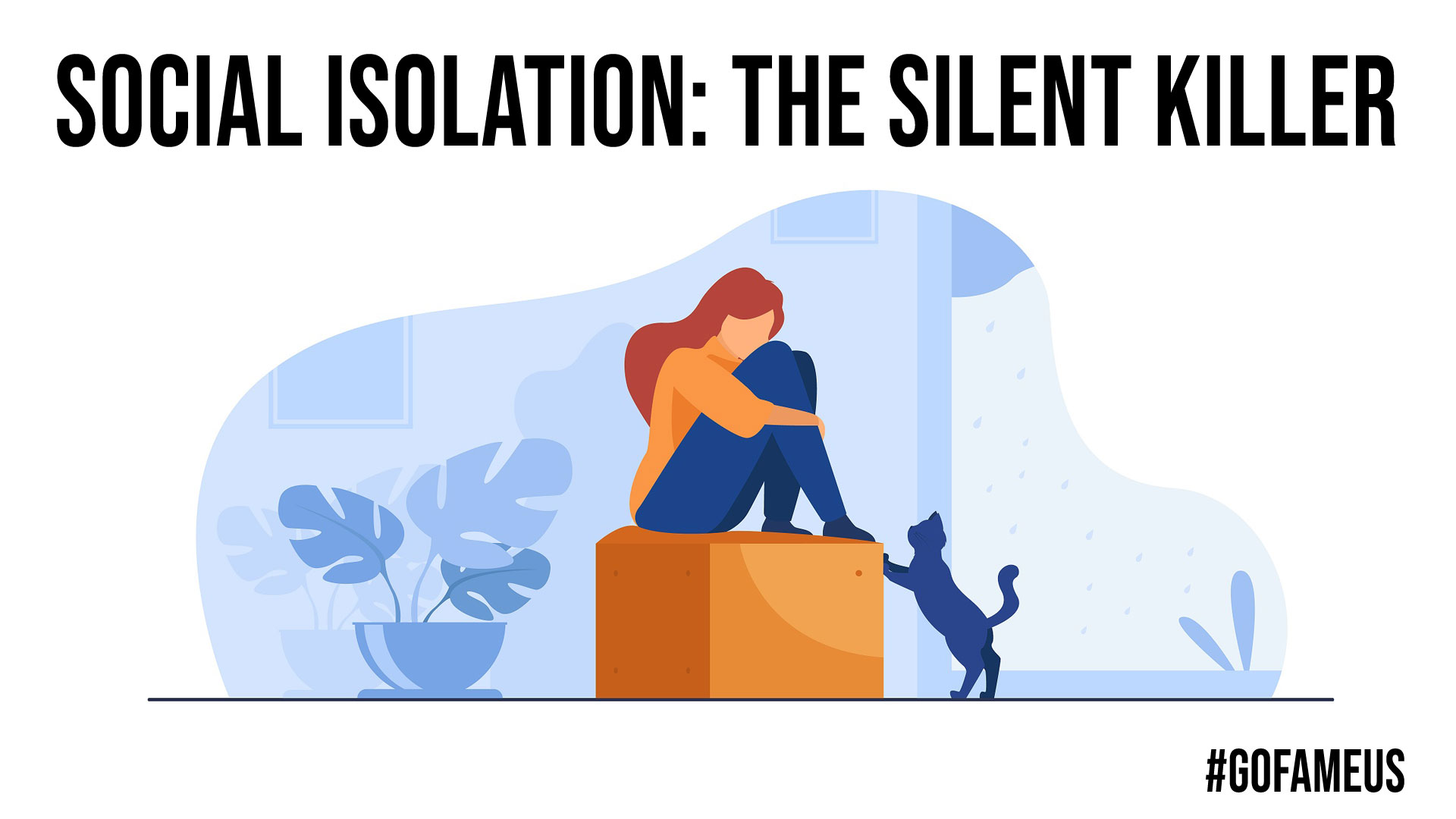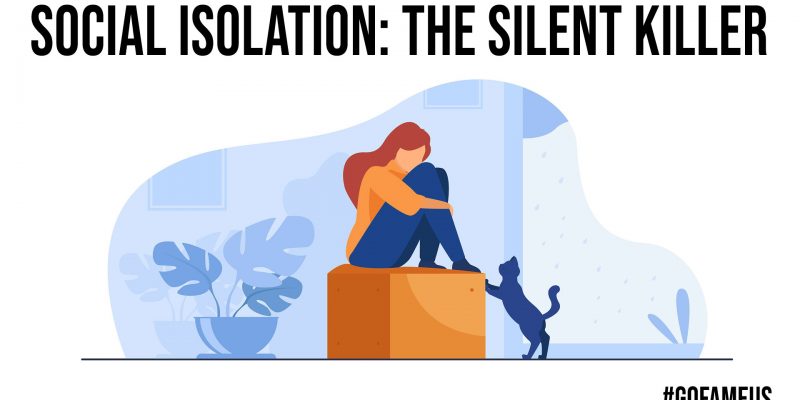In the modern digital age, it’s difficult to imagine anyone being truly isolated. After all, the entire world is only a few clicks away, right? Though that’s the general assumption, the matter isn’t quite so straightforward. Thousands of people are isolated because they have no internet access.
Many others have access to the internet, but they simply don’t have anyone to contact if they need help or interaction.

A Dangerous Development
Geoff Fraser and many other authorities on the matter have found that social isolation is more detrimental than some people may think.
Being disconnected from others is a dangerous situation that may be either directly or indirectly responsible for numerous deaths and countless adverse medical conditions.
While some of the effects are maybe reversible to an extent, others can have lifelong impacts on those affected.
Also Read: 5 Things to Do About An Existential Crisis
Understanding Isolation and Loneliness
Isolation and loneliness take on different forms according to a recent write-up. Social isolation is defined as having no connections with others whereas loneliness is feeling alone internally even in the presence of others.
Those who are isolated tend to feel lonely, but people don’t necessarily have to be completely devoid of social connections to feel lonely. Both may be equally destructive based on the latest research.
Looking at the Physical Implications of Isolation
First of all, consider the obvious physical implications of isolation. If a person falls critically ill or acquires a serious injury, he or she may not be able to get to a hospital or even call an ambulance for help. Some people can count on a friend or relative calling or visiting, finding them injured or ill, and providing assistance.
For those who are isolated, though, it could be days or weeks before anyone discovers their distress. This causes the risk of dying from an injury or illness to skyrocket.
At the same time, having no social connections has been linked to many health risks. By some accounts, isolation can lead to a weakened immune system and an increased risk of heart disease among other negative medical effects.
One report indicates that loneliness can increase a person’s chances of having a stroke and developing coronary artery disease by 30 percent.
Those suffering from heart failure are four times more likely to die from this condition if they’re isolated or lonely.
Exploring the Mental and Emotional Tolls
Studies also show that people who are isolated or lonely have more trouble sleeping than those with broad social circles and strong emotional connections. They’re at greater risk of developing anxiety and depression as well.
Insomnia, anxiety, and depression are all known to negatively affect physical health, and people who suffer from physical conditions are more likely to suffer from mental and emotional disorders. It’s essentially a vicious cycle.
Also Read: Feeling lost and alone in life? 11 Do’s and don’ts to bring you back to life
Staying Connected and Healthy
Many people reach out to loved ones when they’re sad, lonely, in pain, or need help. Having someone to reach out to can make a significant difference in a person’s physical and mental well-being. For those who feel emotionally disconnected from others, reaching out isn’t so easy.
If a person is isolated, they simply have no one to reach out to for help. Either scenario can take a serious toll, increasing the risk of many health conditions as well as the likelihood of dying from illnesses and injuries.




